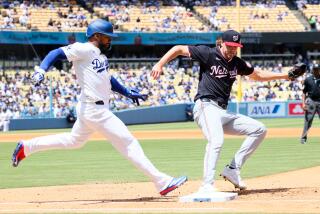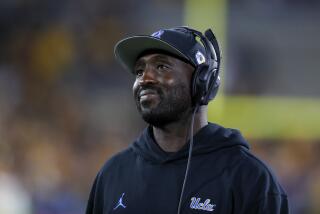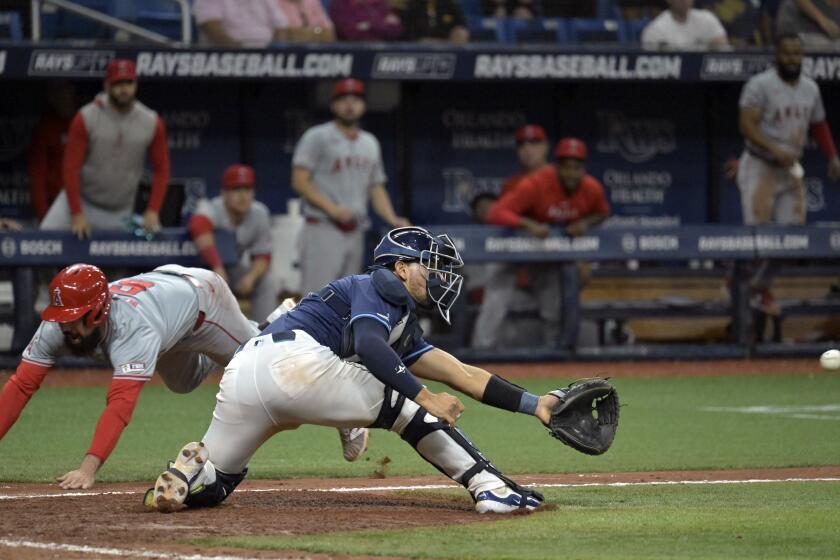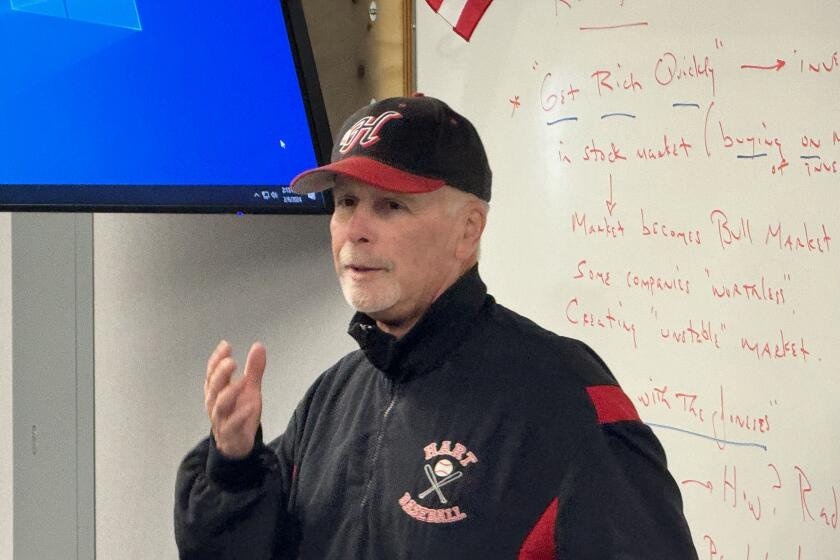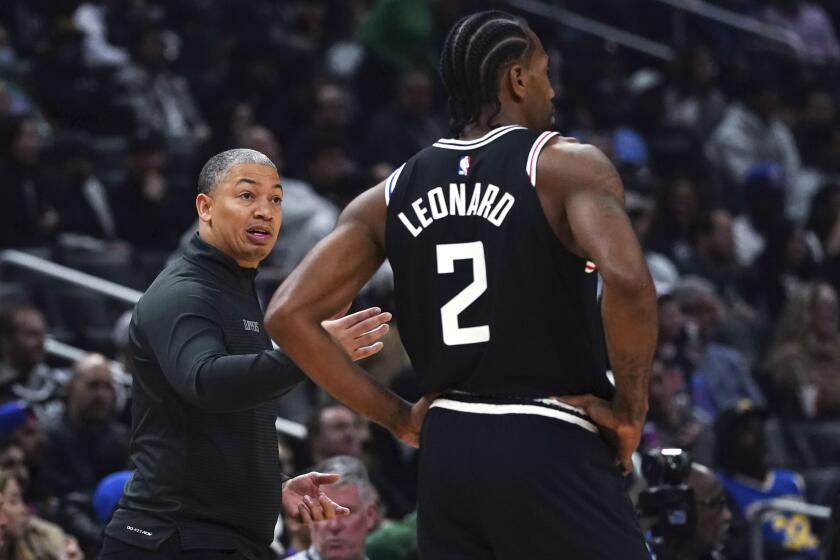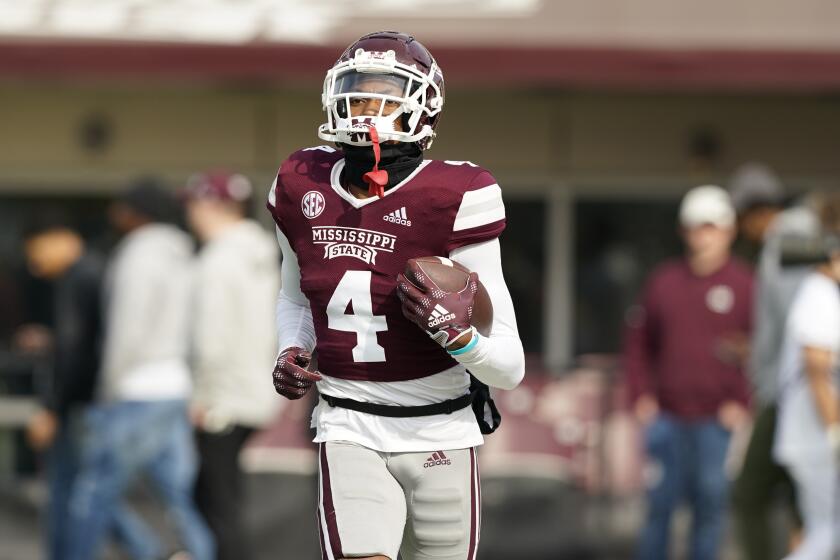Leadoff batter may be Obama
Major League Baseball agreed Wednesday to delay the start of a World Series game by about 15 minutes to make room for a television commercial that Democratic presidential nominee Barack Obama plans to run Oct. 29.
That would be the date for Game 6 of the baseball championship, if a sixth game is necessary.
Obama’s campaign this month negotiated to buy the same half-hour of prime time -- from 8 to 8:30 p.m. EDT that night -- on CBS and NBC.
The campaign also approached ABC and Fox Broadcasting to purchase that half-hour on those networks, but Fox had reserved that time period for a pregame show and Game 6 of the World Series, if the baseball championship extends that long.
Fox asked Major League Baseball to push the start time of a Game 6 to at least 8:35 p.m. Eastern time so that Fox could accommodate Obama’s buy. The first pitch of a World Series game typically is thrown at 8:22 p.m.
The league agreed to make the switch, and Fox sold the half-hour to Obama’s campaign for just under $1 million.
“This is unprecedented in American political and sports history,” said Dan Schnur, director of the Jesse M. Unruh Institute of Politics at USC. He said the only thing that he could think of that came close was an address by President Bush about a week after the Sept. 11 terrorist attacks, a nationally televised speech to a joint session of Congress that brought an NHL exhibition game to a halt.
“This just speaks to the tremendous level of public interest in this campaign,” Schnur said. “Even if most candidates could afford to buy this much time on the networks, they would be afraid that they might not be able to hold viewers’ interest for that long.”
Fox issued a statement, saying: “Fox will accommodate Sen. Obama’s desire to communicate with voters in this long-form format. We are pleased that Major League Baseball has agreed to delay the first pitch of World Series Game 6 for a few minutes in order for Fox to carry his program on Oct. 29. If requested, the network would be willing to make similar time available to Sen. McCain’s campaign.”
Representatives of the McCain and Obama campaigns were not available to comment Wednesday night, when the final debate between the presidential candidates took place. However, the Republican National Committee quickly decried the move.
“It’s unfortunate that the World Series’ first pitch is being delayed for Obama’s political pitch,” said Alex Conant, an RNC spokesman. “Not only is Obama putting politics before principle, he’s putting it before our national pastime.”
Major League Baseball declined to comment.
ABC has had talks with the Obama campaign to sell him the same half-hour that night, but no deal has been reached, an ABC executive said.
Not all viewers would see the Obama ad before the World Series game. In California and elsewhere in the Pacific and Mountain time zones, Fox plans to run the Obama program after the baseball game. It would air before the game in the Eastern and Central time zones, which cover about 70% of the nation’s population.
Obama is the first presidential candidate since Ross Perot 16 years ago to make such a large network TV buy. According to the Nielsen Co., Perot ran a series of political telecasts that year. One half-hour simulcast, carried by ABC and CBS on Nov. 2, 1992, drew 26 million viewers, Nielsen said.
This month, CBS negotiated to sell Obama its half-hour on Oct. 29, the Wednesday before the Nov. 4 election, for $961,000. NBC sold its half-hour that night to the Democratic nominee for $891,250. Networks must provide political candidates airtime at reduced rates.
Obama is orchestrating what TV industry executives call a “roadblock” by buying the same time period on all the major TV networks so viewers flipping around the channels would stop to watch the program because it was carried on so many stations.
“By using this roadblock strategy, he will make sure that he gets a good deal of coverage with one final push to get his message out to a very large audience,” said George Belch, a marketing professor at San Diego State University.
--
More to Read
Get our high school sports newsletter
Prep Rally is devoted to the SoCal high school sports experience, bringing you scores, stories and a behind-the-scenes look at what makes prep sports so popular.
You may occasionally receive promotional content from the Los Angeles Times.
